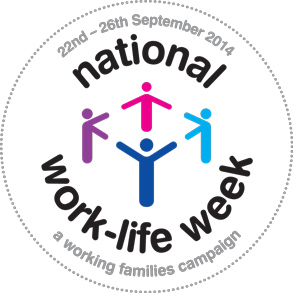Joint blog with Peter Abbott, DHM Lisbon
This week in the UK it is National Work/Life Balance Week.
The Foreign and Commonwealth Office, and its global network of posts, is committed to helping ensure its staff achieve a good balance between work and life outside of work. Something that can help people achieve that is flexible working. My opposite number in Lisbon, Peter Abbott, and I have been reflecting on what flexible working is, and what it isn’t.
Flexible working is not “skiving off”
Adjusting an employee’s work pattern to reflect their personal circumstances or the demands of a particular job does not mean they work any less. It is clear that organisations benefit from the higher productivity of happier workers who have agreed, with their employer, a working pattern that fits their needs and delivers the job. Just because you are working from home does not mean you are watching TV. On the contrary you are less prone to distraction from colleagues popping into your office or being dragged into second-order issues. Which means that it can be particularly well-suited to work that requires a bit more thought and reflection: completing staff appraisals, for example, or writing up a record of a meeting.
Nor is it “a major extra hassle”
At the centre of a successful flexible working arrangement is a clear agreement between job-holder and line manager about the terms; a clear understanding of how the job will still be done (including how and when key face-to-face and wider team meetings will take place); and full transparency with colleagues about the arrangement to avoid it having a detrimental impact on them. The best flexible working arrangements are clearly defined in advance, fully transparent and predictable: hastily agreed or sporadic absences do not constitute flexible working. These arrangements are easy to set up and simple to keep under review, as part of the usual process of staff management.
And it isn’t an “optional extra”
We shouldn’t place flexible working in the “nice to have” category. Smart, modern, inclusive organisations recognise that they have a strong interest in making themselves as attractive as possible to as wide a range of people as possible. Offering flexible working helps you attract and retain the best. Put another way, if you think you can live without offering flexible working you are cutting yourself off from a vast swathe of human potential that could be contributing to your organisation. Of course not every job lends itself to effective delivery through a flexible working pattern – but most do. The balance of assumption should be in favour of flexible working: non-flexible jobs should be the exception, not the rule.
As Tom Jones would say: “It’s not unusual”
Flexible working should be a part of an organisation’s DNA: a natural, instinctive, consideration for all of us as we are filling jobs, inducting new recruits, retaining/developing current staff or reflecting on our own work/life balance.
Flexible working shouldn’t be viewed as “something special”. It is just another consideration to help ensure the people who work for us are delivering successfully within a work pattern that suits them and suits the organisation.

